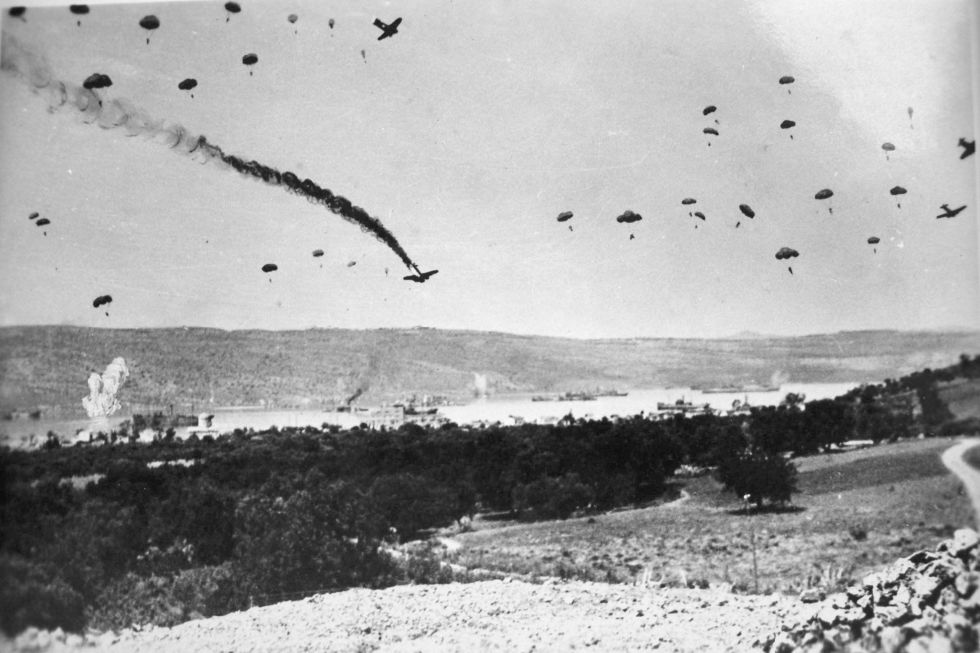Representatives of Polish ruling party Law and Justice are trying to reopen Polish claim on reparations after second world war and want to force Germany to pay Warsaw up to PLN 10 trillion. Seemingly ridiculous situation has, nevertheless, serious political impact. Polish-German disputes are not in anyone‘s interest. Taking increasing tension between Russia and Poland into account, Warsaw shoud be securing its alliances instead of breaking them. On the other hand, Europe cannot afford having bad relations with a country protecting its external border in the east.
According to Polish MP Arkadiusz Mularczyk, Warsaw still has a full right to demand second world war reparations from Germany. The member of Law and Justice did the math and based his calculations on the German debt to Poland, which has significantly increased over the years (from PLN 100 billions to PLN 10 trillion). Apparently, Mr Mularczyk has a rather reasonable explanation for his claim.
Past Unpassed
The said MP argues that the Polish claim is justified since there is no official document proving Poland giving up its rigt for reparations. “The waiver of the reparations was not confirmed in writing with the United Nations thus it did not come into effect“, said Mr Mularczyk in the Polish media.
The story of the Polish claim on second world war reparations continues to appear throughout Polish history. It reappeared more than 60 years ago after Warsaw declared its renunciation on reparations in 1953. According to Mr Mularczyk, in this case the renunciation was forced and therefore unlawful.
Last time, the idea of billing Germany was mentioned in Polish politics over 13 years ago, in 2004. Back then, the Sejm was was pressing Polish government to reopen the question of reparations and send an official claim to Berlin. These attempts were, nevertheless, successfully dismissed.
Russia and International Law
There is, however, also another country which technically owes Poland not an inconsiderable amount of money: Russia. Surprisingly, MP Mularczyk does not support Polish claim on Russian money.
Nevertheless, the situation with Germany (former DDR) and Russia (former Soviet Union) is in this historical context rather similar. After the second world war, Poland did not receive reparations from the Soviet Union as agreed, but instead had to pay the SU in coal deliveries. What is more, that coal was purchased by Moscow for only one tenth of its marker price. The total value of this “payment” amounted to USD 836 million between 1945 and 1953.
Once again, there is no official document confirming that Poland has renounced its right on financial compensation from Moscow. Mr Mularczyk has, however, a reasonable explanation for not demanding a revision of the claim. According to him, Russia (unlike Germany) does not adhere to international law and therefore there is no point in trying to force Russia to settle its debt.
The good news is that Mr Mularczyk got at least the part regarding Russia right. Well, maybe not the only good news after all. Perhaps Germany should be happy that Law and Justice’s claim stops at the second world war and does not go any deeper into the history. Otherwise, next time Berlin might get its bill for the Crusades.
But Seriously…
Despite the craziness of the whole situation, this affair should not be underestimated. Firstly, because it is an obvious attempt to fuel anti-EU sentiments among Poles by discrediting the leading EU country – Germany. When the time comes, these sentiments could be used by Law and Justice as an excuse to fulfill their ultimate political goal – to lead Poland out of the EU so the Union can no more interfere with governmental politics. With this development, the fate of Polish liberal democracy would be sealed once for all.
Secondly, given the escalating relations between Russia and Poland, it is not a very wise move for Warsaw to open another battlefront with Germany. If Poland should hold its positions against Russia, it needs as many strong allies as it can get.
Furthermore, Europe needs a strong country on its external borders. Therefore it is in Europe’s best interest to keep the best relations with Warsaw and support it in every way we can. Even if the governmental politics make it difficult at times.
Law and Justice’s MP Mr Mularczyk under criticism of polish media asked, “In whose interest did the media report on the Polish relations with Germany in the light of war reparations”. Well, the right question to ask might be on whose side do Mr Mularczyk and his party stand.



